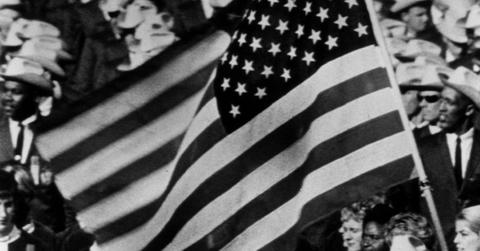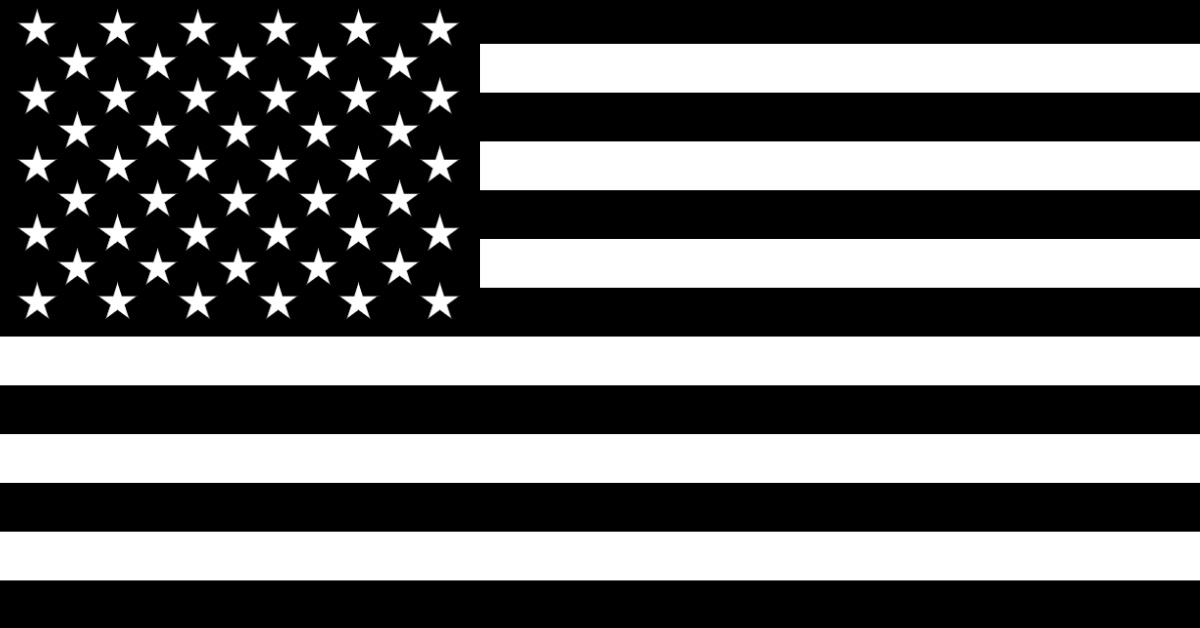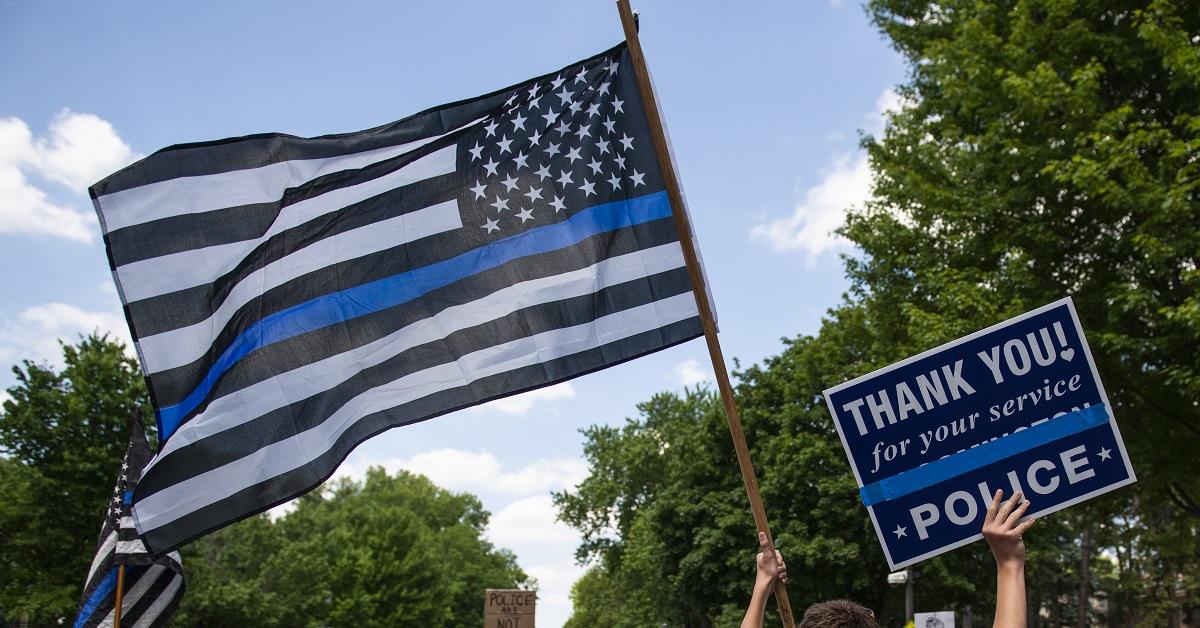Black American Flags Have Taken on a Greater Meaning in Recent American History
Published Dec. 17 2020, 5:57 a.m. ET

Since the nation's founding, the American flag has typically symbolized national pride. The flag has taken on significant meaning for many Americans, even as others have created variations that symbolize other things that some Americans take pride in. That could be anything from their sexual orientation to their support for the various branches of the American armed forces.
What does the black American flag mean?
At this point, there doesn't seem to be one set definition for the meaning of a black American flag. In general, black flags are used by enemy forces to signify that no quarter will be given. What that means is that, during war, enemy combatants are going to be killed rather than taken prisoner. Right now, that meaning doesn't neatly line up with what the black American flag might mean.

Most black American flags are either entirely black, in which case the stars and stripes become almost impossible to distinguish, or black and white, with black replacing the red and blue elements of the flag. These flags are different from the "Thin Blue Line" flag, which has also increased in popularity in recent years, but features a single blue stripe and is otherwise completely black and white.

What does the "Thin Blue Line" flag mean?
While the meaning of a totally black or black-and-white American flag is that no quarter will be given, the "Thin Blue Line" (while also mostly black and white) is different. It is used to signify support for law enforcement. Those who fly the flag argue that police officers work in a dangerous profession, and flying the flag is an acknowledgment of that and a recognition of all of the officers who have died in the line of duty.
Critics of the flag have argued, though, that it also symbolizes a backlash against the fight for racial justice and the Black Lives Matter movement that have also grown stronger in recent years. They see it as a token of the "Blue Lives Matter" movement which sprang up in response to Black Lives Matter and argues that police officers deserve more recognition for their work, even as recent years have seen a flood of Black people killed at the hands of officers.
Even as the "Thin Blue Line" flag has sparked controversy, it has also become an incredibly popular variation of the flag. In many parts of the country, and especially in areas that lean heavily Republican, it's quite common to see the flag displayed. In a country that's been divided along so many lines in recent years, this flag is just one more example of partisan division and political tension.
In spite of the immense cultural power that the "Thin Blue Line" flag has already amassed, the same can't be said for the black American flag, which is still somewhat ill-defined. As is the case with every version of the flag, though, the black American flag will only have an agreed-upon meaning when enough people have agreed that that's what it stands for. The American flag represents this country, but it also represents a myriad of other qualities depending on who you ask.